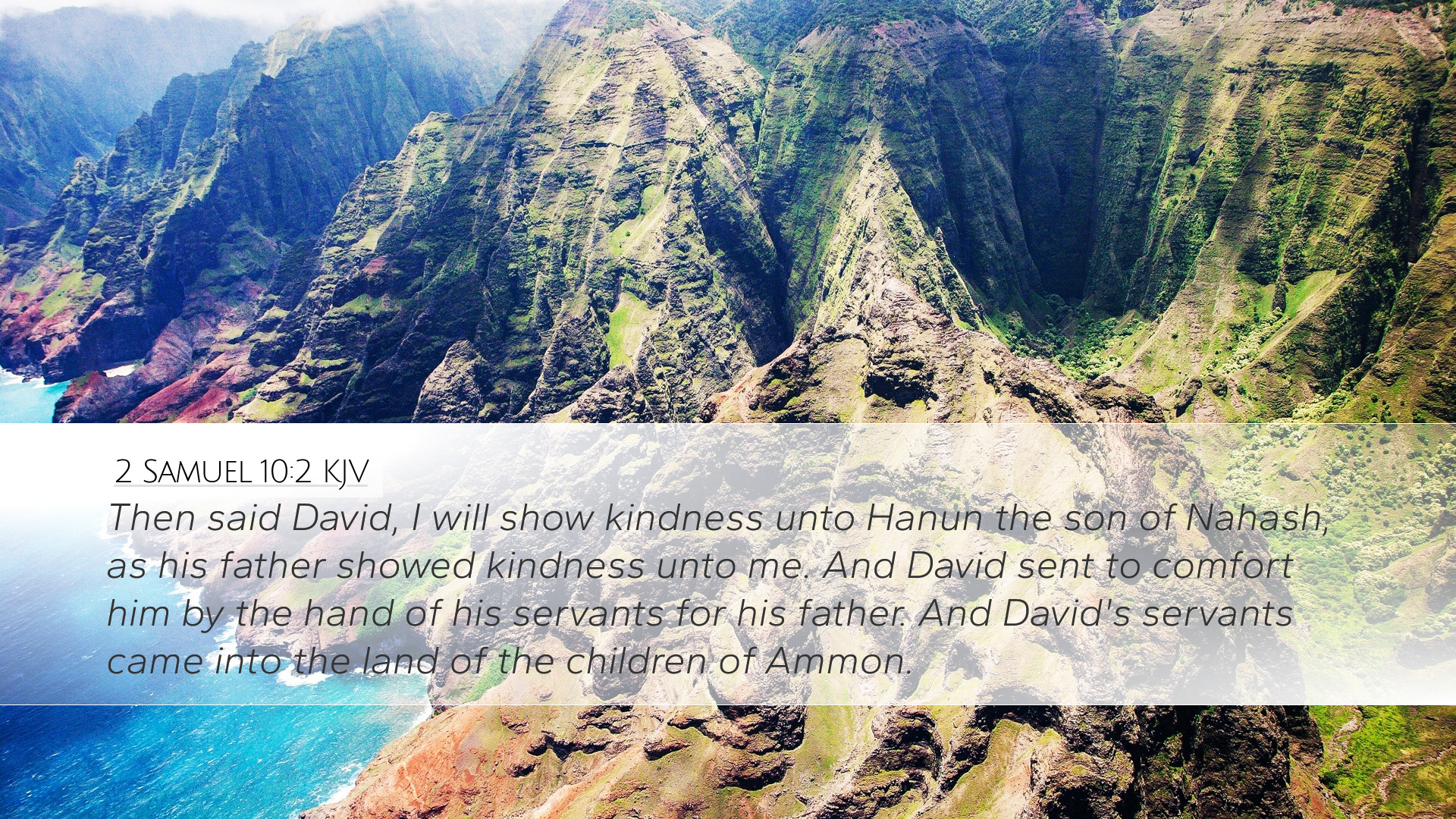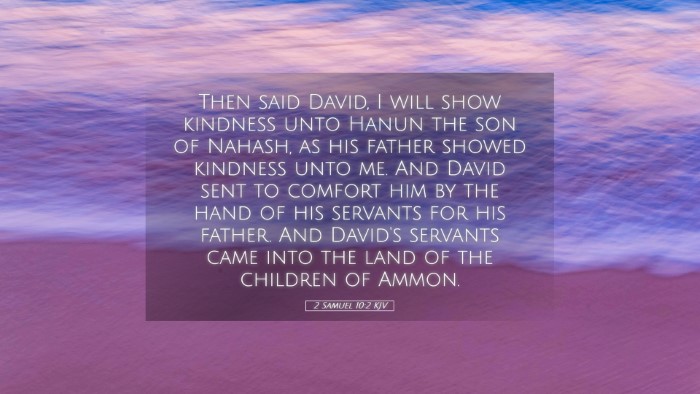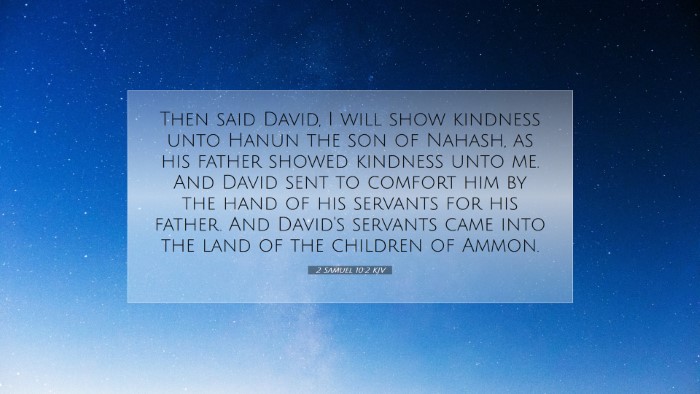Old Testament
Genesis Exodus Leviticus Numbers Deuteronomy Joshua Judges Ruth 1 Samuel 2 Samuel 1 Kings 2 Kings 1 Chronicles 2 Chronicles Ezra Nehemiah Esther Job Psalms Proverbs Ecclesiastes Song of Solomon Isaiah Jeremiah Lamentations Ezekiel Daniel Hosea Joel Amos Obadiah Jonah Micah Nahum Habakkuk Zephaniah Haggai Zechariah Malachi2 Samuel 10:2
2 Samuel 10:2 KJV
Then said David, I will show kindness unto Hanun the son of Nahash, as his father showed kindness unto me. And David sent to comfort him by the hand of his servants for his father. And David's servants came into the land of the children of Ammon.
2 Samuel 10:2 Bible Commentary
Commentary on 2 Samuel 10:2
Verse Context: 2 Samuel 10:2 states, "And David said, I will show kindness unto Hanun the son of Nahash, as his father showed kindness unto me. And David sent to comfort him by the hand of his servants for his father. And David's servants came into the land of the children of Ammon."
General Observations
This verse marks a significant moment in the narrative of David’s reign, highlighting themes of loyalty, kindness, and the complexities of political relationships. It reflects David's character—his desire to reciprocate kindness, a trait that speaks to his nature as a leader.
Commentary Insights
Kindness Displayed by David
Matthew Henry notes that David’s willingness to extend kindness to Hanun is commendable and sets a tone of diplomatic relations between Israel and Ammon. The gesture can be viewed as an effort to solidify alliances in a time of political instability. David recalls the kindness of Nahash, suggesting a relationship based on mutual respect.
The Significance of Hanun’s Father
Albert Barnes emphasizes the importance of Nahash’s previous kindness to David, which had occurred during a time of danger and exile. This historical interaction underlines the idea of honor in relationships—David’s action is not merely a personal courtesy, but a cultural imperative to uphold the reputation and goodwill fostered by Nahash.
The Role of Servants
Adam Clarke points out that David sent his servants to comfort Hanun. This indicates a level of respect and a desire to communicate strength through representatives rather than a direct approach, which is often seen in royal protocol. Clarke also notes that the servants’ visit could be interpreted as an strategic move—not only to show kindness but to assess the political landscape in Ammon.
Theological Themes
- Kingship and Authority: The actions of David demonstrate the dual role of a king—as a ruler who must balance personal relationships with broader political implications.
- Inclusiveness of God's People: David's willingness to engage with the Ammonite leader reflects a broader theological principle where God's kindness and mercy are extended beyond Israel.
- Reciprocal Kindness: This passage serves as a reminder of the importance of kindness and how it can be a foundational element in building and maintaining relationships.
Cultural and Historical Context
Understanding the cultural dynamics of ancient Near Eastern politics helps illuminate David's intentions. The display of kindness often served as a method of diplomacy in that era. Acts of kindness were crucial for survival and stability among neighboring nations, providing context for David's actions towards Hanun.
Political Ramifications
The actions taken by David can also be seen as precursors to future conflicts between the Ammonites and Israelites. Henry suggests that despite the goodwill gesture, misinterpretations could lead to strife, a reminder of how quickly intentions can be misunderstood in international relations.
Applications for Today
- Leadership: Modern leaders can draw insights from David’s approach to kindness and relational diplomacy.
- Community Relationships: The principle of extending kindness can be applied in church communities and among believers, transcending boundaries.
- Conflict Resolution: The verse reminds us of the importance of approaching potential conflicts with a spirit of kindness and seeking to understand one another.
Conclusion
The account of David's actions in 2 Samuel 10:2 serves as a rich narrative for understanding the interplay of kindness, loyalty, and diplomacy within the biblical context. It invites reflection on how these themes remain relevant and applicable across generations in our relationships within the community of faith and the broader world.


